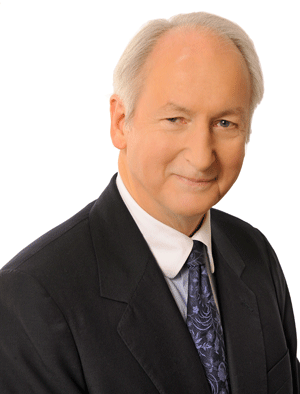Are passengers in automobiles “using” those vehicles? If a recent decision at the British Columbia Court of Appeal stands, they indeed are — and that legislative interpretation could have repercussions for the auto insurance industry.
 In a decision passed down yesterday by the BCCA, Felix v. ICBC, the court was called upon to determine whether a passenger who grabbed the steering wheel, causing a crash and injuring the driver, was indemnified under B.C.’s public insurance scheme.
In a decision passed down yesterday by the BCCA, Felix v. ICBC, the court was called upon to determine whether a passenger who grabbed the steering wheel, causing a crash and injuring the driver, was indemnified under B.C.’s public insurance scheme.
The incident occurred in July 2006, as the appellant, Marnetta Felix, drove her drunken and argumentative boyfriend, Kevin Hearne, home on the highway. A couple of times, Hearne grabbed the steering wheel, apparently trying to scare his girlfriend.
When he grabbed the wheel the third time, however, Hearne pulled it and crashed the car, killing himself and seriously injuring Felix.
What did legislature intend?
Felix sued Hearne’s estate and won a judgment of $792,000 plus costs and then brought an action against the Insurance Corporation of British Columbia for indemnification. The B.C. Supreme Court, however, sided with the public insurance administrator, citing specific regulations that seemingly exclude such incidents.
That decision was struck down yesterday by the BCCA in a unanimous ruling written by Justice Elizabeth Bennett, who expanded the contextual scope of the case by citing continual amendments indicating the legislature’s intent to provide universal, comprehensive coverage in all incidents involving motor vehicles.
In 1975, for example, the province’s regulations defined an insured person as “a [licensed] driver . . . who operates or drives . . . with consent”; in 1984, the licensing requirement was dropped and the definition was broadened as “an individual who with . . . consent . . . operates the vehicle”; and in 2001, the definition was broadened further as “an individual who with consent . . . uses or operates the vehicle.”
The introduction of the word “uses,” to Bennett’s mind, demonstrates a clear intention by the province to include non-drivers in the vehicle.
“‘Use’ is general enough to include a passenger passively using a motor vehicle for transportation. . . . [The relevant provisions] exemplify the intention of the legislature to create a universal insurance scheme to address the identified public policy interest.”
Case law: unusual auto injuries
Bennett goes on to cite a couple of other cases where indemnification was provided in unusual motor vehicle incidents. In Citadel General Assurance v. Vytlingam, insurance was provided for a man who suffered injuries resulting from large rocks that had been dropped from an overpass. In Amos v. ICBC, meanwhile, a man was insured for injuries sustained during an attempted carjacking.
Douglas MacAdams, who represented Felix before the BCCA, says his case also benefited from the 2014 decision in Niedermeyer v. Charlton, in which a tour operator claimed he was absolved of liability in a car crash because his extreme-sports-loving passengers had signed a waiver. The courts, needless to say, disagreed.
“The court of appeal used that case as a way to speak lovingly and comprehensively about the B.C. automobile insurance program,” says MacAdams. “That certainly put the wind in my sails.”
These cases, coupled with amendments that have consistently broadened coverage for motor vehicle users in the province, were enough to win the day for the appellant.
“The word ‘use’ is to be considered in the context of the legislative scheme to provide ‘access to compensation for those who suffer losses’ as a result of a motor vehicle accident, along with the legislative history, context and jurisprudence noted above.”
“While a passenger, or user, in a moving automobile, Mr. Hearne grabbed the steering wheel causing the accident that led to Ms. Felix’s injuries. . . . There is, in my view, a clear unbroken chain of causation from his negligent act to her injuries.”
MacAdams says the decision clarifies law that has been “murky and contentious for many, many years, and to the benefit of the injured.” Further, he notes that it will have implications not only for public insurance schemes operating in B.C., Saskatchewan, Manitoba, and Quebec, but also for the private auto insurance industry.
“As I understand it,” he says, “most insurance documentation across the country includes some formula that has in it the word ‘use’ so I think, yes, lawyers in other provinces are going to pick up Felix and say, ‘Hey look at this.’”










